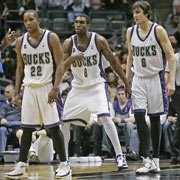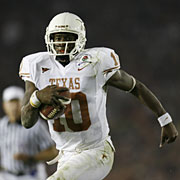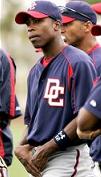
This week, U.S. News and World Report releases its oft-maligned yet unquestionably powerful ranking of American law schools. Schools like mine—which flit between the bottom of the “second tier” and the top of the “third tier”—anxiously await the results. Life in the “second tier” means more submissions to our law review, better applicants from outside of our “region”, and more success at recruiting top candidates for law professorships.
In spite of its flaws, the U.S. News rankings are fascinating, in a certain sense. They have spawned a cottage industry of rival law school ranking methodologies, as well as sparked academic debate about the meaning of rankings and their effect on law schools.
What I’m wondering today is whether there is any effect of the performance of college sports teams on law school rankings. Two components of the U.S. News are “academic reputation,” which is calculated by polling four employees of each of the nation’s law schools (the Dean, the Associate Dean, the chair of the hiring committee, and the most recently tenured faculty member), and “reputation among lawyers and judges,” in which (we think) U.S. News polls practitioners in the state in which the law school is located.
These two measures together constitute something like 40% of the “score” for a law school, and they fluctuate wildly and often have little to do with either the quality of faculty scholarship (something you’d think would affect academic reputation) or student bar passage (something you’d think would affect reputation among practitioners). Part of the problem with these measures is that an associate dean in a law school in Los Angeles may be able to rank Harvard and Yale, but unless they are particularly savvy, probably has never heard of a law school like mine. Whether that person gives us a “1”, “2” or “3” out of “5” plays a huge role in our score. But odds are, they’ve not heard much about us, certainly not enough to give any sort of accurate ranking.
But what if our sports teams suddenly start doing better? Now, suddenly, a school like mine might be one people on the east or west coasts have heard about. Might law school rankings be affected by “break out” years for second, third and fourth tier schools’ undergraduate sports teams? Even first tier schools might benefit. For example, George Mason University has a wonderful law faculty (from a publishing perspective), which is amazingly productive in the area of law and economics. Indeed, GMU law professors produce more scholarship on a per capita basis than nearly any other school. But GMU seems to be stuck in the lower part of first tier (sometimes slipping into the second or third tier), never able to pass larger, better known schools. My guess is this is mostly because the law school is tied to (and anchored by) a third-string state university system (in Virginia, GMU as a whole lags behind UVA, Virgnia Tech, and the College of William and Mary in terms of prestige for state-run institutions). I wonder if things might begin to change now that GMU’s basketball team has had a break-out year in the NCAA tournament, advancing to the Final Four. Two years from now, perhaps we’ll see an even higher placement for GMU Law. Similarly, I wonder if the recent strength of the Mid-American Conference (MAC) in football (in which MAC QBs like Chad P., Byron L., Ben R., Omar Jacobs and Bruce Gradkowski were, or were predicted to be, playing on Sundays) might eventually help buoy MAC law schools like Toledo, Northern Illinois, Akron, and Buffalo into higher rankings. For instance, Marquette’s law school may have benefited reputationally through the contributions of Dwyane Wade, who never wrote a law review article or sat for the bar exam.
On the other hand, at the very top, academic reputation might suffer with athletic success. Many professors – more in arts and sciences but also in law school – still remember being the awkward nerdy kid picked last in sports. They might punish schools in their “academic reputation” when their undergraduate teams do well. For example, Stanford is a wonderful institution, but never seems to attract the reputation of a Harvard or a Yale. Is that because in addition to turning out great scholars, the school turns out great athletes? Schools like UVA, which are near the top in the law academic ratings, perhaps should be careful what they wish for next football season.
UPDATE: The
Sports Economist addresses the likely effect of GMU's Final Four appearence on the university as a whole, and mentions some empirical research conducted on the subject of how universities benefit from "breakout" sports seasons.
UPDATE #2: GMU now faces a danger that its basketball success
may cut into class time. Are diminished bar passage rates in the school's future?
UPDATE #3: Law profs
Larry Ribstein and
Todd Zywicki weigh in.
 I do know that I will have to add discussion of this proposed policy to the draft of my forthcoming law review article, the title of which will tell you how I feel about it: The Reckless Pursuit of Dominion: A Situational Analysis of the NBA and Diminishing Player Autonomy, 8 University of Pennsylvania Journal of Labor and Employment Law
I do know that I will have to add discussion of this proposed policy to the draft of my forthcoming law review article, the title of which will tell you how I feel about it: The Reckless Pursuit of Dominion: A Situational Analysis of the NBA and Diminishing Player Autonomy, 8 University of Pennsylvania Journal of Labor and Employment Law 



















